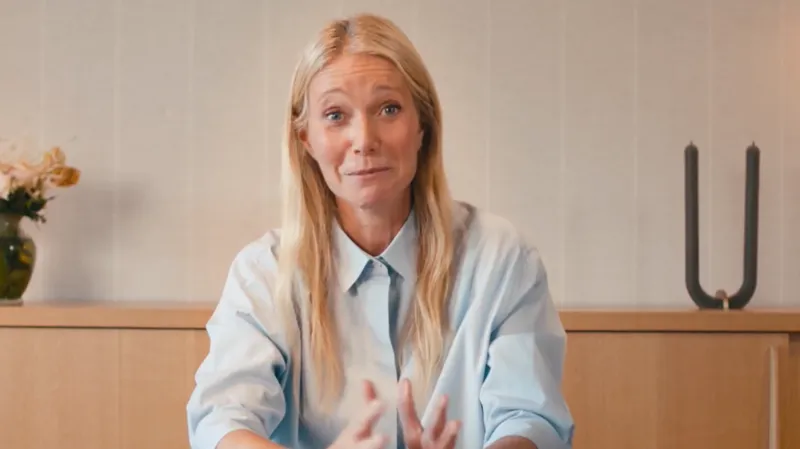Politics latest: Bill legalising assisted dying passed in the Commons by slim majority
MPs have voted in favour of The Terminally Ill Adults (End of Life) Bill - also known as the assisted dying bill - in the Commons today.

The one major concern for opponents of the bill - and why it's a 'terrible message'
This bill passed the Commons, but only just - with a majority of just 23.
And that shows the more people think about this issue, the "more they have had doubts".
That's according to Dr Gordon MacDonald, the chief executive of Care not Killing, who singled out his main concern with the bill.
"Our biggest concern is for people who are vulnerable, who will feel under pressure to end their lives," he told our presenter Samantha Washington.
"That pressure might come from external forces, either family members or people in the care system or the NHS.
"But it's more likely to just be internalised pressure that people feel that they are a burden on their family or their friends."
They're "conscious of the costs of care", he said, and think they should do the "decent thing as they would see it".
"Which is, of course, a terrible message for society to send out to people," he continued.
But he hasn't given up hope of defeating the bill.
"We will see what happens when it gets to the House of Lords," he pointed out.
"The Lords, as I've said, will hopefully give it more rigorous scrutiny than happened in the Commons."
That all the more important as public opinion remains "quite fluid", he said, when told the majority of people support the bill.
"That [opinion] tends to change when presented with the practicalities of it," he said.
Bishop who sits in Lords warns peers must oppose 'unworkable' bill
While the bill's supporters mark a momentous day, the legislation's passage into law is not yet complete.
It still has to go through the House of Lords - and one peer has already come out in a bid to rally opposition to it.
Bishop of London Dame Sarah Mullally, a former chief nursing officer for England, warned of a "postcode lottery in palliative care".
"This private member's bill has received a third reading in the face of mounting evidence that it is unworkable and unsafe and poses a risk to the most vulnerable people in our society," she said.
"If enacted, this legislation would come into force amid serious shortfalls in adult social care, a postcode lottery in palliative care and well documented pressures on the NHS, multiplying the potential risks to the most vulnerable."
It doesn't prevent terminally ill people who see themselves as a burden on their family from choosing to die, she added.
"Every person is of immeasurable and irreducible value, and should be able to access the care and support that they need - a principle that I know is shared by those all faiths and none," she said.
Dame Esther Rantzen's daughter says mother 'didn't think she'd live to see this day'
One of this bill's most prominent supporters was terminally ill former broadcaster Esther Rantzen.
It's her birthday this weekend, and her daughter has described the legislation's passing as an "early present".
Rebecca Wilcox told our presenter Samantha Washington it's not a present that will "work for her" - but she "didn't think that she was going to live to see the debate".
"Let alone see a conclusion that went our way," Wilcox added.
"She told me again about her conversation with Sir Keir [Starmer], and how he promised that if a bill came forward, she would live to see it.
"And he kept his promise. Many politicians don't, but he really did."
The bill still has to pass through the House of Lords and it is likely to face legal challenges.
But Wilcox said today was the "big hurdle".
"A couple of things, very small, may change, but I really think the bill as it is, is a really strong bill with safeguarding at its core," she said.
"It has been scrutinised again and again and again and by experts."
Bill gives people a choice - 'you don't have to do it', says Leadbeater
A bit more now from Kim Leadbeater, who we spoke to moments ago.
Speaking to our correspondent Liz Bates, the MP who drove this bill forward stressed this gives people a choice.
"You do not have to do it," she said.
"And that's the thing I would keep reiterating to people - we've got an extremely well safeguarded piece of legislation here.
"Only people that want to make this choice would get through that entire robust process."
It means "so much to people", she added, and she said "they're the people who've got me through it".
"I'm not going to pretend it's been easy," she said.
The process has been "extremely thorough", she said, and was "always driven... by human emotions and the need to change the law".
People with less than a year to live were there today, she added, because "they know how much it means to give dying people free choice, dignity and autonomy".
Anger as MP arrested for alleged sex offences voted by proxy
Dan Norris, the MP suspended from Labour after arrest on suspicion of rape and child sex offences voted in favour of assisted dying - by proxy.
Mr Norris, the MP for North East Somerset,is banned from parliament while the investigation takes place.
Despite being suspended from the Labour party, a Labour party whip was allowed to vote on his behalf under House of Commons rules.
One Labour MP voting "no" said: "This looks like the political equivalent of punching yourself in the face".
A Labour spokesperson said: "Members without the party whip are allowed a proxy vote under rules agreed by the House."
The Conservative MP Patrick Spencer, who was in court this week to plead not guilty to two counts of sexual assault, also voted by proxy - against the bill.
The rules were put into places so constituents whose MP is suspended can still be represented.
But there was anger at MPs who were ill, and one who was at a dying relative's bedside, were unable to vote.
Adam Jogee, the MP for Newcastle-under-Lyme, said he was called to his father-in-law's bedside as he neared the end of his life - and was unable to vote remotely.
He wrote on X: "It beggars belief that this wasn't possible."
Watch: 'Most moving debate in 15 years' as Sophy Ridge reflects on 'momentous decision'
After 15 years reporting from parliament, our lead politics presenter Sophy Ridge said she's not sure she's seen a more moving debate.
A lot of it was shaped by personal experience from all sides - but what everyone agrees is on is far too many people are suffering awful deaths.
Now, something in our society has shifted, as she explains in the clip below...
Leadbeater hails 'respectful' debate - as bill passes for good of 'families'
We've just caught up with Kim Leadbeater, the MP behind this bill.
Speaking to our correspondent Liz Bates, she described the passing of the bill as "surreal" and a "huge relief".
"A huge amount of work has gone into getting us to this day," she said
"I think we had a very respectful debate - the chamber was, again, at its best, which I think was really important.
"But the important thing is we've got the bill over the line, which means so much to so many people. And I pay tribute to the families and people I've met in these recent months.
"This bill is about them. It's not about employees. It's about those people."
Asked about the silence that fell on the chamber for much of the debate today, Leadbeater said it was important for discussions to remain "deeply respectful", adding she acknowledges people disagree with her on this issue.
"This is the right thing to do, I wouldn't be doing it if I didn't believe that firmly, strongly," she said.
"It was quite a surreal moment, but also deeply respectful, which is, again, how I've tried to conduct this debate throughout the whole thing.
"We've got to learn to disagree better in this country, and sometimes we don't do it well. But I think at times in this debate, we've seen that done very, very well."
Campaigner tearfully welcomes assisted dying bill passing Commons
Frank Tate-Sutton is speaking to Sky News health correspondent Laura Bundock.
Frank is terminally ill and wanted assisted dying to be brought in.
She tearfully tells Laura how she is relieved the bill has passed the most recent hurdle.
"These are happy tears", she says.
Frank says her quality of life is "very important - and I'm losing it".
She goes on to say: "I don't want to die without dignity, without it being my choice, without my family knowing that this is what I want."
A historic moment precipitated by a brutal murder
A chain of events that started with the brutal murder of an MP almost 10 years ago has today lead to historic societal change, the like of which many of us will never see again.
Assisted dying is set to be legalised in England and Wales. In four years time, adults with six months or less to live and who can prove their mental capacity will be allowed to choose to die.
Kim Leadbeater, the MP who has made this possible, never held political aspirations. Previously a lecturer in health, Leadbeater reluctantly stood for election after her sister Jo Cox was fatally stabbed and shot to death in a politically motivated attack in 2016.
And this is when, Leadbeater says, she was forced to engage with the assisted dying debate. Because of the sheer volume of correspondence from constituents asking her to champion the cause.
Polls have consistently shown some 70% of people support assisted dying. And ultimately it is this seismic shift in public opinion that has carried the vote.
Britain now follows Canada, the USA, Belgium, Switzerland, the Netherlands and Australia. All countries with sophisticated health systems - nowhere has assisted dying been reversed, once introduced.
The relationship between doctor and patient will now also change.
The question is being asked: Is an assisted death a treatment? There is no decisive answer. But it is a conversation that will now take place. The final answer could have significant consequences, especially in mental health settings.
There are still many unknowns. Who will be responsible for providing the service? The NHS? There is a strong emotional connection to the health service and many would oppose the move. But others will argue that patients trust the institution and would want to die in its arms.
The challenge for health leaders will be to try and reconcile the bitter divisions that now exist within the medical community. The royal colleges have tried to remain neutral on the issue but continued to challenge Leadbeater until the very end.
Their arguments of a failure of safeguards and scrutiny did not resonate with MPs. And nor did concerns over the further erosion of palliative care. Leadbeater's much repeated insistence that "this is the most scrutinized legislation anywhere in the world" carried the most weight.
Her argument that patients should not have to fear prolonged, agonising deaths or plan trips to a Dignitas clinic to die scared and alone, or be forced to take their own lives and have their bodies discovered by sons, daughters, husbands and wives because they could not endure the pain any longer was compelling.
The country believed her.
Assisted dying bill passed by MPs
The House of Commons has passed the assisted dying bill.
Kim Leadbeater, who proposed the bill, was seen crying in the chamber as it went through.
Some 314 MPs voted in favour, while 291 against - a majority of 23.
This is less than half the majority in November at second reading, when 55 more MPs voted in favour than against.
This means the legislation will now be considered by the House of Lords.
Terminally ill patient hopeful bill will pass
Frank Tate-Sutton was watching the debate closely from her south London home.
She has stage four liver disease and is terminally ill.
She vehemently supports the bill.
"Today, I woke up feeling very emotional," she said.
"My brain's kind of all over the place, a little bit, especially because, you know, it's coming to the final decision, but nothing will stop me being pro to this bill."
MPs voting on assisted dying
The debate has finished on assisted dying, and MPs will now be going into the aye and no lobbies to give show their choices.
One of our reporters has spotted the prime minister going into the aye lobby.
These votes tend to take around 15 minutes to work through.
Last speech on assisted dying - vote imminent
Stephen Kinnock, who is a health minister, is rounding up the debate in the Commons on the assisted dying bill.
The government is not backing the bill, and Kinnock's support is from an individual standpoint.
Him standing up shows the vote will begin soon.
Kinnock thanks MPs for their scrutiny, including the people who served on the committee which went through proposed amendments.
Assisted dying debate heading into final furlong
We now have less than half an hour left on the assisted dying debate.
There are still plenty of MPs hoping to speak in the debate, but they won't get the chance.
The chamber is starting to fill up a bit more with MPs ahead of the vote.
Sir Keir Starmer has appeared in the chamber - after speculation he might not turn up.
He voted in support of the bill last time.
For the side opposing the bill, the Conservative's Dr Kieran Mullan gives the closing speech.
He again criticises the lack of time for debate and the way in which the process has been handled.
MP whose mother campaigned for assisted dying comes out against bill
Labour MP Chi Onwurah stands up to share with colleagues about her mother backed assisted dying.
She says she was "brought up on the right to die" - saying her mother was disabled, in "great pain" and a cancer survivor.
Onwurah says her mother was a member of the Voluntary Euthanasia Society, the precursor to Dignity in Dying.
She says "Newcastle United, feminism, and the right to die were mother's milk to me".
But the MP urges colleagues to vote against the bill because it is "without the rigour or scrutiny necessary to make assisted dying work in practice".
Moving speech of MP's brother seems to leave colleague watery-eyed
Maureen Burke, the Labour MP for Glasgow North East, has just shared a moving story about her brother.
She says David, when he was 52 was suddenly diagnosed with advanced pancreatic cancer.
"Over the next 18 months, David tried everything he could to stay alive," she says.
But Burke says nothing was successful and by the end of his life, David was living in a hospital bed at home, with increasing doses of painkillers.
"His body became skeletal and his speech gradually disappeared, and one of the last times when he still was able to speak, he called out to me from his bed and told me if there was a pill that he could take to end his life, he would very much like to take that," she goes on.
Burke - with MPs behind her appearing to be emotional - says David continued to "suffer in silent pain for a further three weeks",
She says that he is doing "right by her brother" in speaking in support of assisted dying.
Assist disabled people 'to live, not to die' says Labour MP who resigned from government yesterday
Yesterday, Labour MP Vicky Foxcroft resigned as a government whip over her party's approach to welfare reforms.
She spoke in the chamber today to outline which she could not support assisted dying - and spoke about how it would impact disabled people.
Foxcroft said: "I don't claim that every disabled person opposes assisted dying, but I do claim that the vast majority of disabled people and their organisations oppose it.
"They need the health and social care system fixing first. They want us as parliamentarians to assist them to live, not to die.
"Disabled people's voices matter in this debate, and yet, as I've watched the bill progress, the absence of disabled people's voices has been astonishing.
"They have wanted to engage. Indeed, they have been crying out to be included, yet the engagement has been negligible."
She highlights, for example, the lack of accessible versions of the legislation.
Fewer than two hours left on assisted dying debate
It's 12.30pm, which means we have just two hours left on the assisted dying debate.
This is because the Commons only give until 2.30pm for private members bills to be debated on Fridays.
Having had around two hours of debate already, this means we are around halfway through proceedings.
We're expecting the votes to happen around 2pm, but these things are all up in the air, as is the way when it comes to parliamentary proceedings.
Deputy Speaker Nus Ghani reminds speakers they have limited time and some won't get to contribute.
Anyone feeling emotionally distressed or suicidal can call Samaritans for help on 116 123 or email jo@samaritans.org in the UK.
Harrowing stories, the views of doctors, are there enough psychiatrists?
MPs from both sides of the debate are continuing their debate on the assisted dying bill.
Josh Babarinbe, a Lib Dem MP, shares a harrowing tale from a constituent that found their terminally ill partner who stuffed sheets into his mouth in an attempt to end his own life.
"It was the most distressing sight, and one I will never forget," Babrimbe reads to the House.
Bill will 'put back' case for assisted dying
Another Lib Dem MP - Sarah Olney - then stands up to speak.
She says she was on the committee to decide on amendments. Olney warns that they had to make decisions without the correct knowledge, and in a view to win votes rather than provide the best legislation.
The MP then warns that the legislation will get caught up in legal challenges and other hurdles even if it does pass.
Olney adds that "if this bill passes, the case for assisted dying will be fatally undermined and put back their cause for a generation".
She also warned that - if the Royal College of Psychiatrists opposed the legislation - there may not be enough practitioners to staff the panels that would decide on applications for assisted dying.
The view of a doctor
Peter Prinsley, the Labour MP and doctor, speaks in support of the bill.
He speaks of his time seeing the loss of "dignity" in people with "disfiguring head and neck cancers".
He then goes on to say does not "think we will see coercion to undergo assisted dying families".
-SKY NEWS







